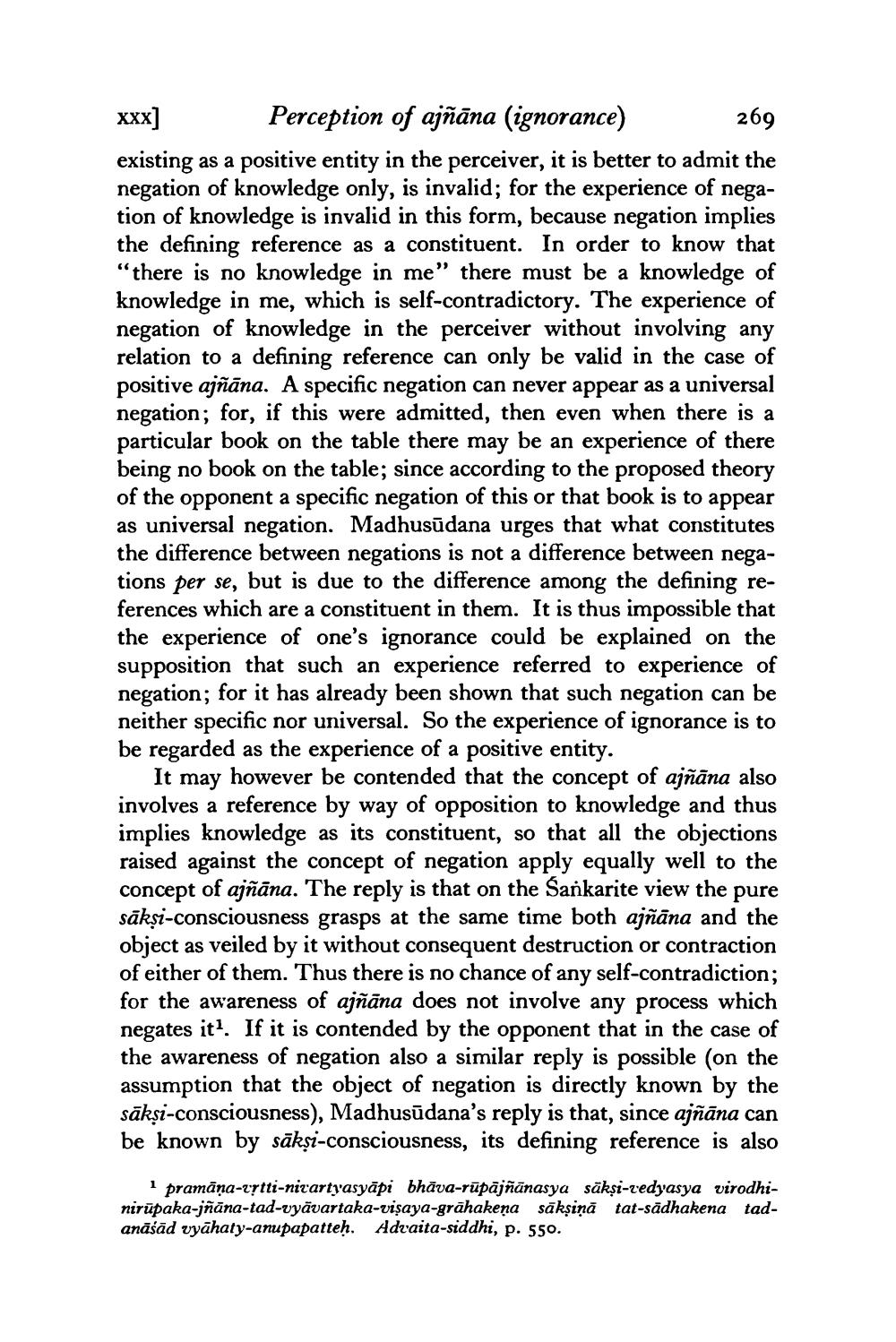________________
xxx] Perception of ajñāna (ignorance) 269 existing as a positive entity in the perceiver, it is better to admit the negation of knowledge only, is invalid; for the experience of negation of knowledge is invalid in this form, because negation implies the defining reference as a constituent. In order to know that “there is no knowledge in me" there must be a knowledge of knowledge in me, which is self-contradictory. The experience of negation of knowledge in the perceiver without involving any relation to a defining reference can only be valid in the case of positive ajñāna. A specific negation can never appear as a universal negation; for, if this were admitted, then even when there is a particular book on the table there may be an experience of there being no book on the table; since according to the proposed theory of the opponent a specific negation of this or that book is to appear as universal negation. Madhusūdana urges that what constitutes the difference between negations is not a difference between negations per se, but is due to the difference among the defining references which are a constituent in them. It is thus impossible that the experience of one's ignorance could be explained on the supposition that such an experience referred to experience of negation; for it has already been shown that such negation can be neither specific nor universal. So the experience of ignorance is to be regarded as the experience of a positive entity.
It may however be contended that the concept of ajñāna also involves a reference by way of opposition to knowledge and thus implies knowledge as its constituent, so that all the objections raised against the concept of negation apply equally well to the concept of ajñāna. The reply is that on the Sankarite view the pure sākṣi-consciousness grasps at the same time both ajñāna and the object as veiled by it without consequent destruction or contraction of either of them. Thus there is no chance of any self-contradiction; for the awareness of ajñāna does not involve any process which negates it. If it is contended by the opponent that in the case of the awareness of negation also a similar reply is possible (on the assumption that the object of negation is directly known by the sākṣi-consciousness), Madhusūdana's reply is that, since ajñāna can be known by sākṣi-consciousness, its defining reference is also
pramāna-zștti-nitartyasyāpi bhāva-rūpājñānasya sāksi-vedyasya virodhinirūpaka-jñāna-tad-vyāvartaka-visaya-grāhakeņa sākşiņā tat-sādhakena tadanāśād vyāhaty-anupapatteh. Advaita-siddhi, p. 550.




